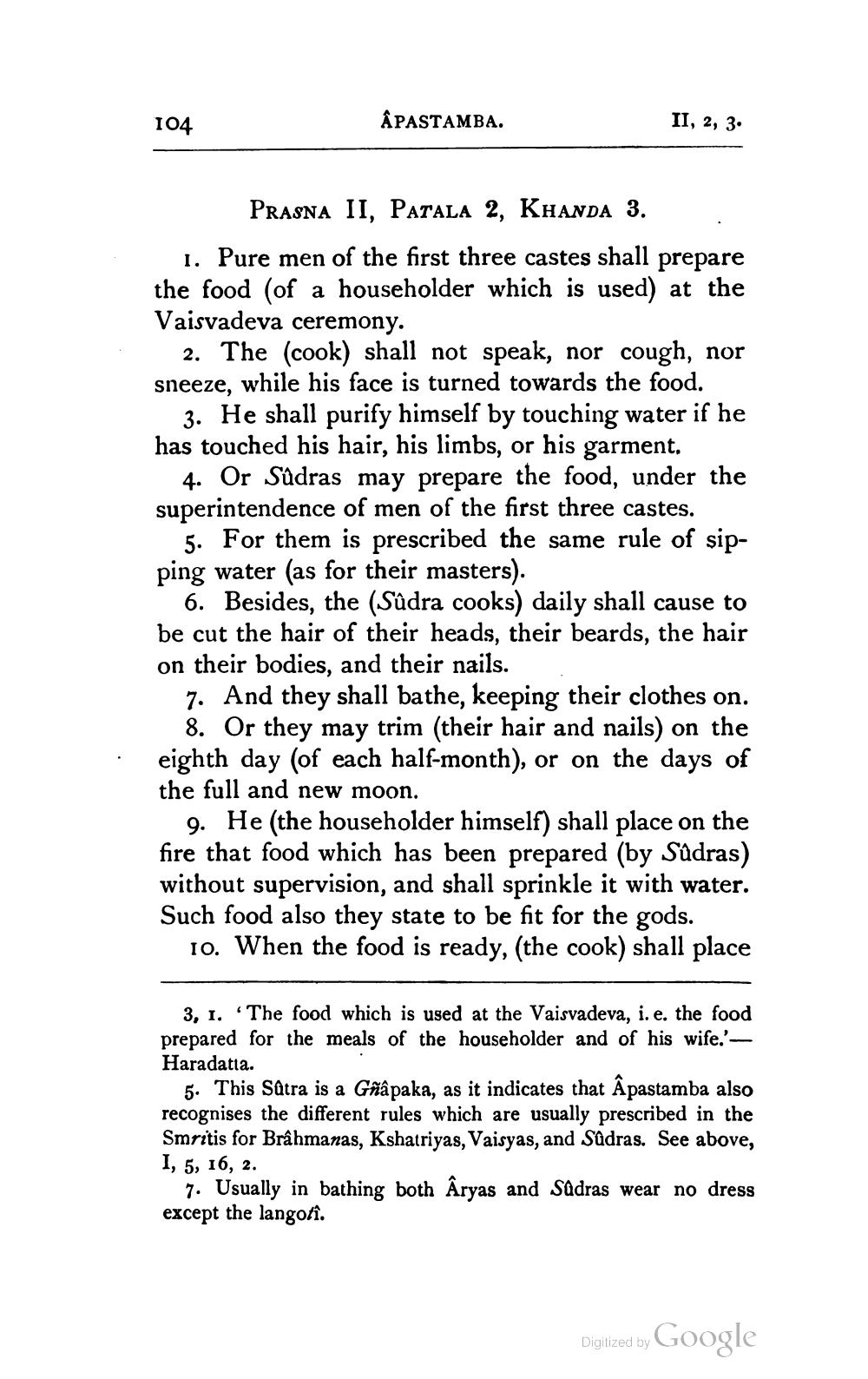________________
104
ÂPASTAMBA.
II, 2, 3.
PRASNA II, PATALA 2, KHANDA 3.
1. Pure men of the first three castes shall prepare the food (of a householder which is used) at the Vaisvadeva ceremony.
2. The (cook) shall not speak, nor cough, nor sneeze, while his face is turned towards the food.
3. He shall purify himself by touching water if he has touched his hair, his limbs, or his garment.
4. Or Sûdras may prepare the food, under the superintendence of men of the first three castes.
5. For them is prescribed the same rule of sipping water (as for their masters).
6. Besides, the (Sûdra cooks) daily shall cause to be cut the hair of their heads, their beards, the hair on their bodies, and their nails.
7. And they shall bathe, keeping their clothes on. 8. Or they may trim (their hair and nails) on the eighth day (of each half-month), or on the days of the full and new moon.
9. He (the householder himself) shall place on the fire that food which has been prepared (by Sûdras) without supervision, and shall sprinkle it with water. Such food also they state to be fit for the gods.
10. When the food is ready, (the cook) shall place
3, 1. The food which is used at the Vaisvadeva, i. e. the food prepared for the meals of the householder and of his wife.'Haradatta.
5. This Sutra is a Gñâpaka, as it indicates that Âpastamba also recognises the different rules which are usually prescribed in the Smritis for Brahmanas, Kshatriyas, Vaisyas, and Sûdras. See above, I, 5, 16, 2.
7. Usually in bathing both Aryas and Sudras wear no dress except the langotî.
Digitized by Google




